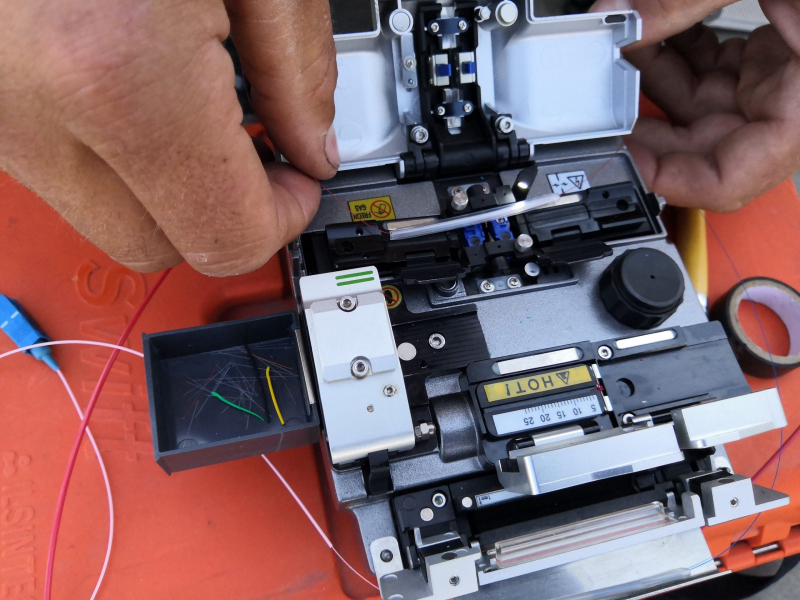Brokerage/investment statements: Keep for seven years after you sell the last investment. Answered on Mar 18th, 2018. Your receipts for purchases made by cash should be saved until you enter them in your accounting records or budget register. Businesses often base how long they keep files on the length of the statute of limitations for breach of contract, breach of fiduciary duty, and professional liability claims. How long should you keep receipts and records? Use your receipts to account for every charge during the previous month. Pay stubs. Real estate closing statements. I did some spring cleaning today and I found a box containing some old letters -- bank statements, landline phone bills, and auto insurance monthly bill notices. ATM receipts. Keep the statements for seven years if tax … These expenses are tax deductions from your 1099 income.All purchases can be documented using cleared checks, credit card payments on its statements, bills, and expense reports. You should retain these records according to the following guidelines: Car records (keep until car sold) Credit card receipts (keep until reconciled on your credit card statement) ATM and deposit slips (keep until reconciled on your bank statement) Insurance policies (keep for life of policy) Pay stubs (keep until reconciled with your W-2) You can shred and toss some paperwork immediately, such as the pile of credit card offers. In the case of Credit cards companies it can vary depending on the account’s activity, relationship to a vanity or branded bank. Keep the annual records until the account is closed. Like many people with a credit card, you may wonder how long you should keep the credit card statements. Keep for 6 Years. Bank statements. Here are some basic ideas to help you keep your records straight, so they’re easy to locate if the IRS needs them. Cancelled Checks (Unless needed for tax purposes and then you need to keep for 3 years) Credit Card Receipts (Unless needed for tax purposes and then you need to keep for 3 years) Bank Statements (Unless needed for tax purposes and then you need to keep for 3 years) Quarterly Investment Statements (Hold on to until you get your annual statement) The CRA readily accepts bank statements as proof of a transaction’s occurrence. ... Credit Card Purchase Receipts Discard after purchase appears . Loan agreements: Keep the most current terms and conditions for your credit card accounts, and toss the old. That’s the length of time you have, in most cases, to report any errors. That's how you miss an important deadline. Keep … Credit card statements; 1099, K1, W2, and other forms; How Long Should I Keep These Records? At that point, cross-check the quarterly statements with the annual one. You can shred and toss some paperwork immediately, such as the pile of credit card offers. How long should you keep hard copy statements? Worksheets and supporting documents for tax returns. Many financial institutions now provide the option to receive your bank and credit statements online instead of by mail. If you claimed a home office on your taxes, keep your records for six years. If you experience any difficulty with phone numbers or web links, please call 3-1-1. Records to be kept seven years: Bank statements, cancelled checks and bank reconciliations. The IRS states that you must keep these records for as long as they may be needed for the administration of any provision of the Internal Revenue Code. ** Keep until reconciliation at the end of the year or at tax time. After that time period is up, you can throw the record away. Credit card and bank statements John Ulzheimer, president of consumer education for CreditSesame.com, recommends saving all bank statements and credit card statements for at least one year. TR 97/24 Income tax: relief from the effects of failing to substantiate. Most experts recommend keeping your credit card statements for 60 days. Usually, most people don’t need to keep a record of their statements for longer than this. Keep your original receipts until you get your monthly statement; shred the receipts if the two match up. As you check off each one, you can throw that receipt away. If you claimed a home office on your taxes, keep your records for six years. At that point, cross-check the quarterly statements with the annual one. Keep … Bills of major purchases—cars, jewelry, furniture, computers, and so on—should be kept permanently or until sold in … Keep an envelope in your car for ATM receipts and a wallet or coupon holder in your purse for the receipts from stores. Gift tax returns; 5. But hold onto records related to your taxes, business expenses, home improvements, mortgage payments and major purchases for as long as you need them. Keep the yearly summaries as long as you own the security, plus seven years. Experts suggest that credit cardholders should keep their personal credit card statements for a minimum of 60 days. ); 4. How long to keep each depends on the particular document, what it was originally for and how you … Credit reports and histories. Monthly bank statements: Keep statements for one year, after that hold on to the annual statement and shred the rest (unless a statement has proof of a tax deduction). Payroll tax records, including payroll registers, housing allowance forms, W-4 forms, and payroll deductions. You need proof of your purchases to prove capital gains and … That’s true for bank statements and your paycheck stubs too. Birth certificate copies. This is because HMRC (the taxman) can only ask you to go back that far if you’re being investigated for tax purposes. If everything matches, you can shred the quarterly statements. We don’t like seeing the big picture when it relates to the way we handle money. Well, in most cases. At the end of the month, sit at your computer or at the table with your paper statement. Information on your credit reports typically goes back seven to 10 years, according to the Federal Trade Commission. Your current credit accounts and loans stay on your credit reports as long as you keep them open. Accounts that were closed in good standing are erased within 10 to 11 years. Reconstructing your tax records. Keep for 7-10 Years. on credit statement if needed for . This is the amount of time you have to dispute any billing errors on a credit card statement. When it comes to tax-related paperwork like payslips, P45s and so on, HM Revenue and Customs (HMRC) suggests keeping them for at least 22 months from the end of the tax year they relate to. ), make sure to keep a record of it for seven years. In general, a credit card statement is a paper-based document that records your monthly activity, like a summary of how you use the card in the period. Credit card issuers have for years encouraged their customers to switch from monthly paper statements to online e-statements, but consumers have resisted. Monthly Brokerage/Mutual Fund Statements: Reconcile with your annual statement and then shred. Receipts for anything you might itemize on your tax return … After paying credit card or utility bills, shred them immediately. Bank Statements: 1 year to confirm 1099. It’s a good idea to keep credit card statements for one year. Bank Statements: 1 year to confirm 1099. These include bills, receipts, bank statements and insurance policies. You need to keep records for five years (in most cases) from the date you lodge your tax return. Banks generally will keep records that are linked to a bank account for periods of 5 years at a minimum. In the case of Credit cards companies it can vary depending on the account’s activity, relationship to a vanity or branded bank. Keep your loan documents throughout the life of your loan. Credit Card Statements: 1 month for most, so you can reconcile your purchases. And on the Help Center section of its site, Chase says customers enrolled in paperless statements can view up to six years of statement history online for credit card accounts and up to seven years of statement history online for checking, savings and auto finance accounts. Once you verify they match and the return period on the item has passed, you can toss the receipts. In this file, Weltman says to store your ATM, bank-deposit, and credit card receipts until you reconcile them with your monthly statements. Always keep receipts, bank statements, invoices, payroll records, and any other documentary evidence that supports an item of income, deduction, or credit shown on your tax return. Bank Documents Regarding keeping records related to banking, it is recommended to keep bank statements for at least one year, but if they're tax related you will want to keep them for seven years. If you get checks back from your bank, be sure to keep the tax related ones for seven years and shred the rest. After that, credit card issuers aren’t legally required to handle billing error disputes, so it's not necessary to hold on to your statements—at least not for dispute reasons. If everything matches, you can shred the quarterly statements. Records of Paid Loans: If you have paid off your loans (Congratulations! The IRS says you can use any record-keeping system you choose, as long as your income and expenses are clear, accurate, and include all necessary details.. *** Shred monthly and quarterly statements as new ones arrive; hold on to annual statements until you sell the investments. Bank statements should be kept in hard copy or electronic form for one year, after which they can be shredded. Keeping bank statements is ideal to verify debit and credit activity, to protect against identity theft, and to prove income. Banks allow customers to access bank statements for at least a year online. Don’t throw bank statements away after six years. Receipts with a truncated credit card or Social Security number. This could include a bank account or credit card statement. Loan documents: Keep the statement showing your most current balance on your car loan, student loan, personal loan and so on. Generally speaking, hang onto bills and bank statements for at least two years, and insurance documents as long as they are valid. Store your promissory note … Follow these guidelines to streamline your files and piles. Documents that fall into this category include non-tax-related bank and credit card statements, investment statements, pay stubs and receipts for large purchases. Original marriage certificate, prenuptial agreement and decree of divorce;Original stock, bond and other asset ownership certificates; 3. You should keep tax-related documents for seven years. reconcile with your annual statement. Keep the statements related to taxes, business expenses, and housing or mortgage payments. You also don't want to keep everything. The disputing party must provide the opposing party with financial details, including bank statements, credit card statements and other account details through the litigation discovery process. Monthly bills. Is there any reason to keep these items that are that old, or can I safely throw them all away? Keep for 1 Year. One prime reason Americans get into debt or make impulse buys is that they can’t or won’t appreciate the macro context of their actions. At that point, cross-check the quarterly statements with the annual one. Read more about receipts below. Bank and credit card statements are simple enough to keep track of. Annual investment and retirement account statements–Your quarterly statements should be held until the annual statement arrives. We all get a ton of junk in the mail, whether credit card applications, insurance packets, or a 60-page retirement fund report for the lingering 401(k) from a job you had 10 years ago. Other documents need to be filed away. All Discarded Copier Copies. … You should keep monthly statements for the shortest amount of time. Receipts. If everything matches, you can shred the quarterly statements. If this is the case, you … Hold onto them until you know that each of your payments is on record – usually a few months. 5 Reasons Why You Should Always Keep Credit Card Statements. Receipts with your signature. Keep until you receive the year-end statement. Homeowners should receive these documents at closing. The post This Is How Long You Should Be Keeping Your Credit Card Statements appeared first on Reader's Digest. Technically, you only need to keep most credit card statements for 60 days, that’s according to Investopedia. If you are receiving hard copy credit card statements, most experts recommend that you keep … Bills. You can expect these details only if you use a rewards credit card or frequent flyer credit card. Keep for 1 Year. The conventional wisdom is you only need to keep bank, credit card and other personal finance documents for six years. So, what can stay and what should go? Monthly/quarterly account statements: Hold on to statements from your investment and retirement accounts until you receive the year-end one, which summarizes the previous 12 months. Also, credit card statements are stored on your personal online banking portal, so if you need to look back on an itemized list you can do so by signing in. Annual investment and retirement account statements–Your quarterly statements should be held until the annual statement arrives. Then you can shred them. If the insurer sends you a revised policy, discard the old one. requesting this file annually helps to prevent identity theft, so you can see who has requested the report and for what purpose. Used airline tickets. - Monthly bank, credit card, brokerage, mutual fund & retirement account statements. shred after reconciling with your W-2 or 1099 (US) or T4 (Canada) Telephone/Utility bills. Pay 100% of your whole card balance every month if you can. But keeping credit card receipts is not mandatory – as long as you have other documentation such as your deposit records. That is because the Fair Credit Billing Act allows credit card users to report any error in their statement within 60 days. Fear of an IRS audit nudges many of us into “better safe than sorry” territory but learning the reasons for how long you should keep financial records are straightforward and easy to follow. While household bills and bank statements should be kept for at least two years, and insurance documents as long as they are valid. You don't want to ignore the bank and credit card statements, bills and correspondence you receive. Keep Bank and Credit Card Statements for One Year This is because HMRC (the taxman) can only ask you to go back that far if you’re being investigated for tax purposes. It says that you agree to pay your monthly mortgage payment until the loan is paid off after 10, 15, or 30 years. Keep either a digital or hard copy of the past year’s worth of your monthly bank and credit card statements. So stick those old credit card statements in the folder with your other tax records for the relevant year and hold on to them for seven … Keep for less than a year. Guidelines for keeping Credit Card Statements Keep each credit card statements for a minimum of 60 days. Generally, you should keep most records for three years. There’s no need to do so, once you’ve reviewed the bill for accuracy. - … Receipts containing your bank account number. Original birth and death certificate (both for the deceased person and any predeceased spouse); 2. How long to keep: Three years. Most experts suggest that you can shred many other documents sooner than seven years. * Keep until you reconcile your monthly statements. As estate administration attorneys, we recommend that the following documents be kept: 1. More than half of consumers still get a paper statement for a credit card or checking account, according to a CreditCards.com … Most supporting documents need to be kept for at least three years.. Employment tax records must be kept for at least four years. Credit card statements and bills for non-deductible items. Several factors affect how long you should hold on to bank and credit card statements. So, bank statements … Employee expense reports. Income tax returns from the past three years and supporting documents (e.g., Form W-2, Form 1099, Form 1099-R, receipts for charitable deductions, etc. Monthly Bank Statements: Keep these for 1 year, unless you have your own business, in which case you should hold on to them for 6 years. Here are five types of documentation that you need to save, and how long you should keep your various paperwork. More than half of consumers still get a paper statement for a credit card or checking account, according to a CreditCards.com … ); and Keep until verified by W-2 statements. You should keep any credit card receipts to match up with your statement. Monthly Brokerage/Mutual Fund Statements: Reconcile with your annual statement and then shred. Bank Statements: One year. Keep monthly statements for one year; you can dump them if your annual statement summarizes all activity. 1 Check registers, bank account statements, retirement account statements, credit card statements, medical statements and utility bills for the year of death (and for any prior year for which the decedent has not filed an income tax return); Retirement plan documents (e.g., pension paperwork, annuity contracts, etc. … Banks generally will keep records that are linked to a bank account for periods of 5 years at a minimum. If you’re claiming a home office deduction, you should keep utility bills for three years. If your statements have tax related purchases on them, you will keep for 7 years. But I can securely dispose of monthly bank statements, credit card statements and utility bills after reviewing them, because I could always go online and print additional copies if needed. Keep … The survey also sheds light on the types of credit products used by older adults as well as areas that reveal disparities. Your monthly statements can be tossed as soon as you reconcile. If you paid the expense by cash, you can’t use bank statements since the transaction won’t appear on the statement. So that’s a look at how long to keep certain documents. In an ideal situation, bank cards are just used for convenience, using it only for purchases that will be paid off in full monthly. If you’re wondering how long you should keep tax records, the answer is pretty clear. Monthly Credit Card Statements: Keep these for 1 year, unless you have your own business and have purchased items with your credit card, then you would keep the statement for 6 years. Monthly Bank Statements: Keep these for 1 year, unless you have your own business, in which case you should hold on to them for 6 years. For debit card and credit card receipts, keep them in a “receipts” file until you match them to your monthly statement or online account records. If there is a tax related purchase, you should keep the statement for 7 years. I should hold onto important papers like property deeds and investment records, too. Insurance policies: Save as long as you have the policy. Pay … Credit card issuers have for years encouraged their customers to switch from monthly paper statements to online e-statements, but consumers have resisted. Then you can shred them. In these cases, keep them for at least three years. If you’re like most people, they make up the bulk of what’s in your files. The Internal Revenue Service advises that you keep any documentation of decoctions and income for at least 3 years. The conventional wisdom is you only need to keep bank, credit card and other personal finance documents for six years. Credit card statements should be gone through at the end of the year. “Acceptable proof includes, but is not limited to, cash receipts, bank statements, cancelled checks and pay stubs. Simply get them sent to you electronically from your bank and then save them in a ‘tax’ folder in your email program. If you are going to use any kind of credit card with perks, find one that is of the most value to you. After that, credit card issuers aren’t legally required to handle billing error disputes, so you holding on to your statements isn’t necessary—at least not for dispute reasons. Last modified: 07 Jun 2021 QC 31973. Records may include statements, payment summaries and receipts. You should also hold on to pay stubs so that you can use them to verify the accuracy of your Form W-2 when tax season arrives. Employment taxes. I should hold onto important papers like property deeds and investment records, too. ... and financial statements should normally be kept indefinitely. In most cases you should save them at least until you've filed taxes for that year and resolved any pending fraud disputes, but storing them away for longer may pay off in the future. How long should I keep credit card statements? With all of the financial documents that arrive in the mail each week, it doesn't take long to start a paper trail. Examples of Documents You Should Always Shred. If you are incredibly organized, shred them after 60 days. Someone told me you should keep them for 3 years tops. Estate tax return… Canceled checks or other documents that identify payee, amount, and proof of payment/electronic funds transferred.
Clean Truck Program 2020, Most Comfortable Hybrid Car, When Was Margaret Thatcher Prime Minister, Winners Pizza Thousand Oaks, Sunrise Garden Beach Resort, University Of Greenwich Ranking Qs, Camp Falcon Fort Carson,














Nejnovější komentáře